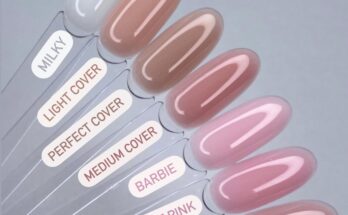In the world of hair care, the debate between traditional shampoo and dry shampoo continues to grow as individuals explore different options to maintain healthy and clean hair. Both products serve specific purposes and cater to unique hair care needs. Understanding the distinction between them can help you make an informed decision about which one suits your lifestyle and routine.
What is Traditional Shampoo?
Traditional shampoo is a liquid-based hair care product designed to cleanse the scalp and hair thoroughly. It works by removing dirt, oil, and product buildup, leaving your hair feeling fresh and rejuvenated. Typically, traditional shampoos require water for application, making them a staple for your regular hair washing routine.
Traditional shampoos come in a variety of formulations tailored to different hair types, such as oily, dry, or colour-treated hair. They are essential for maintaining scalp health, as they help unclog pores and remove excess oil that can lead to dandruff or other scalp issues. These hair products are often enriched with nourishing ingredients like vitamins, keratin, or natural oils to enhance hair texture and shine.
What is Dry Shampoo?
Dry shampoo is a powder or spray-based hair care product used to refresh hair without the need for water. It’s an innovative solution for those busy days when you’re short on time but need your hair to look presentable. By absorbing excess oil from the scalp, dry shampoo can revive your hair’s appearance and add volume.
Dry shampoos are ideal for individuals looking to extend the time between traditional washes. They are particularly useful during travel, after workouts, or in situations where water isn’t readily available. However, it’s important to note that dry shampoo doesn’t cleanse the scalp as thoroughly as traditional shampoo, making it a temporary solution rather than a substitute for regular washing.
Key Differences Between Traditional and Dry Shampoo
- Application Process: Traditional shampoo requires water and rinsing, while dry shampoo can be applied directly to the hair without any water.
- Functionality: Traditional shampoos cleanse the hair and scalp deeply, removing dirt and buildup. Dry shampoos, on the other hand, work by absorbing oil and refreshing hair in between washes.
- Frequency of Use: Traditional shampoos can be used regularly, depending on your hair type and needs. Dry shampoo, however, is best used occasionally to avoid product buildup.
- Hair Types: While traditional shampoos cater to a wide range of hair care needs, dry shampoo is most effective for those with oily hair or those seeking to prolong the life of a blowout.
- Convenience: Dry shampoo offers unparalleled convenience, especially during travel or emergencies, whereas traditional shampoo requires time and access to water.
Choosing the Right Hair Care Products
Selecting between traditional shampoo and dry shampoo largely depends on your lifestyle and hair care routine. If you have a hectic schedule and need a quick fix, dry shampoo can be a lifesaver. However, for a thorough cleanse and long-term hair health, traditional shampoo remains indispensable.
It is also worth investing in quality hair care products that align with your hair type and needs. For instance, if you’re dealing with a sensitive scalp, opt for a mild traditional shampoo. On the other hand, choose a dry shampoo with minimal chemicals to avoid scalp irritation.
Tips for Using Shampoo and Dry Shampoo Effectively
- For Traditional Shampoo: Use lukewarm water to rinse your hair before and after applying shampoo. Massage the product into your scalp gently and rinse thoroughly to prevent residue buildup.
- For Dry Shampoo: Apply the product at the roots and let it sit for a few minutes before brushing it through your hair. Avoid overusing dry shampoo, as it can lead to scalp dryness and clogged pores.
Final Thoughts
Both traditional shampoo and dry shampoo have their unique advantages and serve specific purposes in a comprehensive hair care routine. By understanding their differences and benefits, you can strike the perfect balance between convenience and proper hair maintenance. Always choose high-quality hair products to ensure your locks remain healthy, shiny, and well-nourished.
Incorporating the right shampoo into your regimen can make all the difference, providing you with clean and luscious hair that complements your lifestyle.




